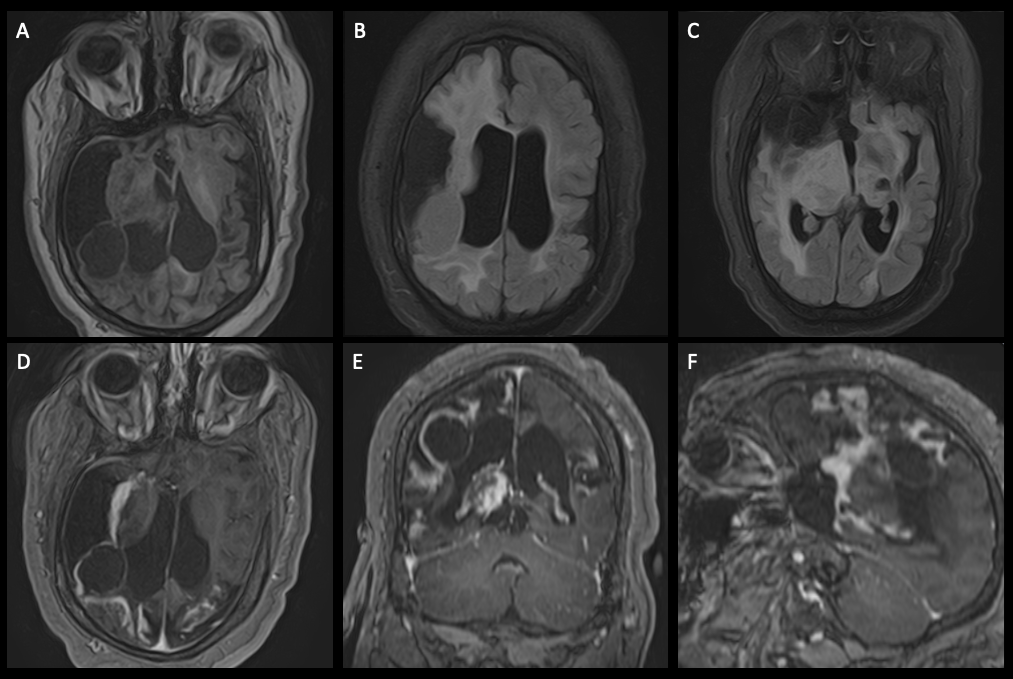A Pediatric Case of Late Relapse of Neonatal Herpes Simplex Encephalitis in a 14-Year-Old
DOI:
https://doi.org/10.3941/jrcr.5495Abstract
Herpes simplex encephalitis is the most common type of viral encephalitis. However, recurrence or relapse is rare. Late relapse, defined as recurrent active infection later than 3 months from the end of antiviral treatment, is even rarer. The following case illustrates the longest recorded idiopathic late relapse of herpes simplex encephalitis with biopsy-proven confirmation on histopathology. The literature suggests multiple mechanisms for relapse including latent reactivation, post-infectious autoimmune disease, and genetic predisposition. Regardless, untreated recurrent herpes simplex encephalitis has a high morbidity and mortality, and it is the only etiology of viral encephalitis with an effective anti-viral treatment. As such, it should remain an important consideration on the differential diagnosis of encephalitis for prompt recognition and timely management.

Downloads
Published
Issue
Section
License
Copyright (c) 2025 Journal of Radiology Case Reports

This work is licensed under a Creative Commons Attribution-NonCommercial-NoDerivatives 4.0 International License.
The publisher holds the copyright to the published articles and contents. However, the articles in this journal are open-access articles distributed under the terms of the Creative Commons Attribution-NonCommercial-NoDerivs 4.0 License, which permits reproduction and distribution, provided the original work is properly cited. The publisher and author have the right to use the text, images and other multimedia contents from the submitted work for further usage in affiliated programs. Commercial use and derivative works are not permitted, unless explicitly allowed by the publisher.





